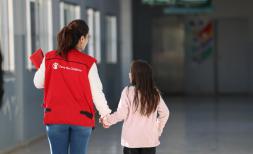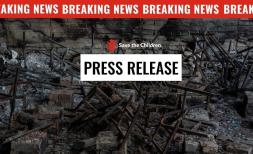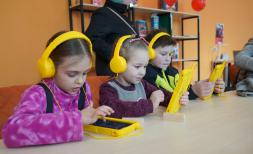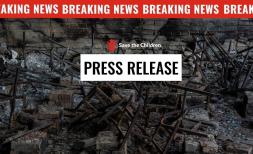Mozambique: Rising violence driving up child marriage in Cabo Delgado province
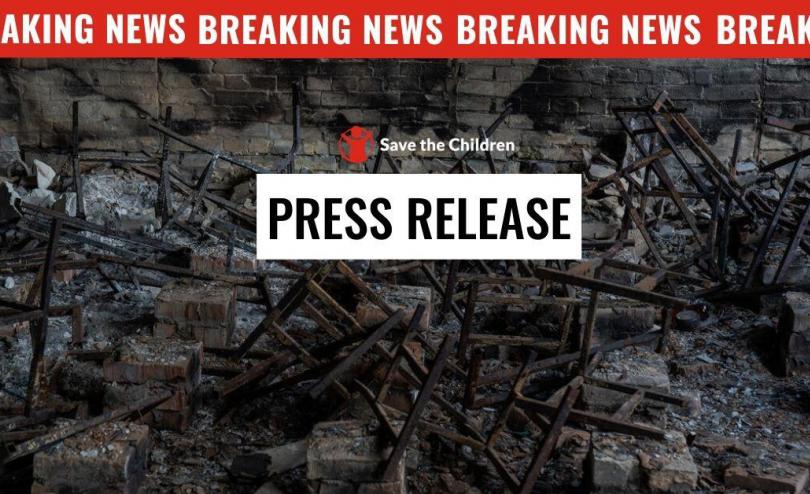
PEMBA, Mozambique, 3 July 2024: An escalation of violence in Cabo Delgado province in Mozambique is driving up cases of early and forced marriage with girls abducted and forced into marriage by armed groups or by families seeking a dowry, Save the Children said.
Child protection staff from Save the Children have found an increase of 10% in recorded cases of children marriage in 2023 compared to the previous year [1] with fears the numbers are rising further as the conflict cuts children off from the protection and support needed.
More and more children are voicing concerns that this could happen to them as the conflict heads towards its eighth year with no end in sight.
A surge of attacks in Cabo Delgado since January this year has led to school closures putting more than 22,700 children out of the classroom so far this year.
The violence has also led to the widespread destruction of property and displacement. The most recent attack last month saw gunmen hold the town of Macomia under siege for two days. They also raided a medical facility, looting vehicles and medical supplies.
At least 700 people fled the latest fighting in Macomia, with data from the UN in June showing more than 189,000 people have been forced from their homes since the end of last year, the largest displacement since the start of the conflict [2] which has killed over 4,000 people and forced more than 700,000 people from their homes since 2017.
The data on child marriages comes as Save the Children launches a major report on gender and power analysis of child marriages in Cabo Delgado following a recent assessment in Chiure and Palma districts.
Children told the aid agency and partners that they have seen an uptick in early marriages and teen pregnancies and they are scared it will happen to them.
Some said their parents were doing this to get money to feed their families as conflict has depleted household incomes, weakened protection services, and led to a lack of opportunities for adolescents. Some cultural practices and traditions are also fuelling the increase in child marriages, children said in the survey.
The report also shows that cases of forced marriage have taken place after the abduction of girls by organised armed groups, or as a strategy to resolve sexual abuse, with families opting to receive assets or money as dowry compensation [3].
Telma*, 17, a survey participant, said she has friends and knows girls from her community who have gone through this horrifying ordeal.
She said: “Some girls are still in prison [held by armed groups] today. They are forced to obey everything they are told to do, and they even have children. Even little girls are taken and grow up there, until they become women. Some girls are killed, and the younger ones are left to grow up for a while and then they are forced to have sex.”
Early and forced marriage has devastating consequences for a girl’s life. Girls married young are far less likely to stay in school and are at higher risk of physical and sexual violence. They are also at greater risk of experiencing dangerous complications in pregnancy and childbirth.
Save the Children is calling for a speedy resolution to the conflict in Cabo Delgado and for more funds to be made available to provide care and assistance for girls and boys facing increasing risk of child marriages and other protection concerns. Further, Save the Children appeals to the parties in the conflict to respect the integrity and rights of the children ensuring that they are not targets and are not involved.
Save the Children's Country Director in Mozambique, Brechtje van Lith, said:
“Child marriage not only robs girls of their childhood but also has severe long-term consequences on their health, education, and overall development. It perpetuates a cycle of poverty and inequality, impacting not just the individual child but also the wider community.
“The girls of Cabo Delgado have the right to a secure future of their choice, including the right to an education and a career, the right to decide if, when, and whom they marry and have children; and the right to access quality health care and social services. It is our collective duty to protect these girls. Now we understand the complexities of their world better, and it is vital that we now strategise together with the government, development and humanitarian partners to protect these girls and allow them to enjoy their rights.”
Save the Children has been working in Mozambique since 1986 and is one of the leading development and humanitarian agencies in the country. The organisation’s humanitarian response reached about 370,000 people, including 133,000 girls, in Cabo Delgado last year through education, child protection services, health and nutrition as well as cash and voucher assistance. Save the Children is also focused on identifying unaccompanied and separated children, providing mental health and psychosocial support in Macomia.
ENDS
NOTES TO EDITORS
· The data on child marriage comes through Save the Children’s child protection programme, which supports children experiencing serious risks to their health and wellbeing issues - including child marriage, neglect and mental health issues.
· Between 20 November and 4 December 2023 Save the Children conducted consultations through focus group discussion with children, parents and community leaders in Chiure and Palma districts of Cabo Delgado to identify the root causes and contextual drivers of child, early and forced marriages and unions. The assessment involved 297 participants, including 134 children.
[1] Between January and December 2023, Save the Children’s child protection teams in Cabo Delgado recorded 339 cases of child marriage in the Chiure, Montepuez, Macomia, Palma and Metuge districts, compared to 309 cases during the same period in 2022.
[2] Data from the United Nations Office for the Coordination of Humanitarian Affairs released in June 2024.
[3] This assessment was conducted as part of a gender and power analysis in Cabo Delgado province done in collaboration with the government, child parliamentarians, and local civil society organisations to identify the root causes and drivers of child, early and forced marriages and unions.
For more information please contact:
Delfhin Mugo, Regional Media Manager for East and Southern Africa based in Nairobi: Delfhin.Mugo@savethechildren.org;
Emily Wight, Global Media Manager based in London: Emily.Wight@savethechildren.org;
Our media out of hours (BST) contact is media@savethechildren.org.uk / +44(0)7831 650409
Please also check our Twitter account @Save_GlobalNews for news alerts, quotes, statements and location Vlogs.
